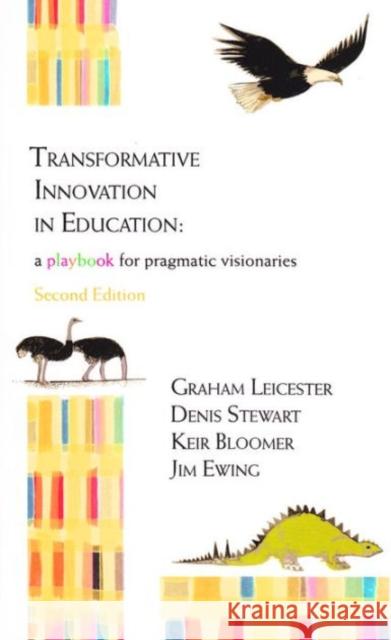Transformative Innovation in Education: a Playbook for Pragmatic Visionaries » książka
Transformative Innovation in Education: a Playbook for Pragmatic Visionaries
ISBN-13: 9781909470101 / Angielski / Miękka / 2013 / 66 str.
This is the second edition of a book first published in the spring of 2009. Since then it has gone through a number of reprints. Its message has resonated with readers around the world: given the right kind of guidance and support, our institutions of education are perfectly capable of instigating the kinds of radical changes they need to make in order to prepare our young people for an uncertain future. The authors can say this with some confidence because the insights, tools, suggestions and recommendations in the pages of Transformative Innovation in Education are rooted firmly in practical experience. The 'three horizons' framework on which it is based allows everyone free rein to share their concerns about the present system, to admit deeper aspirations that might be frustrated or under-realised today, and to design a 'second horizon' transition strategy to shift the system in that direction. This is not 'blue skies visioning' but hard-headed engagement with often uncomfortable facts about changes in the real world. But it also allows space for inspiration. In partnership with the Scottish inspectorate of schools, Education Scotland, IFF worked with a wide variety of educationalists, practitioners, policy makers and others to explore how transformational change might be achieved. As a result, IFF has developed significant new resources to support transformative innovation in a highly decentralised, bottom-up, system-wide approach. Powerful frameworks for moving from insight to action developed by Jim Ewing are described in a substantial new addition to the original text on 'practical approaches to transformation'. The permissive policy framework set in Scotland by Curriculum for Excellence, which invites transformational change in the education system, has now attracted positive attention in different parts of the world - particularly the US, Asia and Australia. But the question remains: how can we make it work? How can government and other agencies best support a permissive programme of radical innovation in education? How can schools themselves take the lead? This book explains how. It tells a story in six sections: a widespread international story of disappointment in educational reform the three horizons framework for thinking about longer-term transformational change the limitations of international models of 'standards-based reform' developing a transformative framework in Scotland an outline of the tools and processes that are shifting the Scottish system into the future recommendations for a policy framework to encourage transformative innovation in education: 'making shift happen'."











